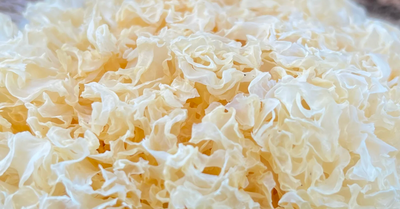
Ashwagandha Guide: History, Health Benefits and Dosage

Ashwagandha Guide: History, Health Benefits and Dosage
Ashwagandha Guide: History, Health Benefits and Dosage
Ashwagandha is an adaptogenic herb, gaining increasing attention for its use in supporting those with high stress levels. Ashwagandha, commonly known as Indian Ginseng due to its rejuvenating properties, has been used for thousands of years as a nervine tonic (nervous system support) in ayurvedic medicine. The name “ashwa” means horse and “gandha” means smell, as the root supposedly smells like the animal, however some interpret it to mean that consuming the herb gives you the power of a horse!
What are the benefits?
This adaptogen is regarded as a tonic, aphrodisiac and stimulant and is a natural agent that is reported to help the body cope with psychological stress.
The science. Research on the benefits of ashwagandha is constantly growing as more attention is drawn to this herb. The power of ashwagandha (latin name: Withania Somnifera) comes from the active ingredients:- Alkaloids - possessing anti-inflammatory and anti-bacterial properties.
- Steroidal lactones - involved in stress management and immune function.
- Saponins - responsible for influencing blood glucose and triglyceride levels.
- Withanolides (e.g. sitoindosides) - acting as key anti-stress agents.
Mental health - This herb is perhaps best known for the stress-relieving properties it possesses. Research studies have shown that taking ashwagandha appropriately is associated with an improvement in mood stability, psychological stress relief, reduced depression symptoms, reduction in anxiety symptoms and reduced levels of the stress hormone cortisol.
Joint health - Anti-inflammatory properties play a role supporting joint health, in fact in earlier years the powder was once mixed with water to form a paste to apply to joints, reducing inflammation, or to ulcers and painful swellings.
Blood glucose - Small decreases in blood sugar have been seen, possibly a result of improving insulin secretion and insulin sensitivity.
Strength and stamina - Studies have shown it may increase muscle mass, increasing physical strength and stamina.
Hormonal health - Female hormonal health is particularly supported during menopause, and improvements in libido have also been shown as women reported increased arousal, lubrication, orgasm and sexual satisfaction. Male hormones are not left out, ashwagandha has been associated with improved fertility in men.
Heart health - Heart health is supported through reductions in cholesterol and triglycerides, as well as an increase in oxygen intake.
Immune health - The active components of ashwagandha possess antioxidant, antibacterial and antimicrobial properties, they also support the activity of our immune cells.
Brain health - Studies have shown that within 8 weeks of daily use ashwagandha may enhance brain function, improve memory and increase concentration.
Energy levels - Ashwagandha aids sleep, which supports increased energy levels and enhances nervous system function.
Where can I find Ashwagandha?
After reading all of those potential benefits, one would assume your next question is “where can I get this and how do I use it?” We’ll give you the guidance you need! You will usually find the ashwagandha root dried and ground into a fine powder before being added to supplements, drinks and foods. You can find ashwagandha or ashwagandha extracts in supplement form, e.g. capsules, powders, gummies and drops, in drinks, including coffees, and it’s even been added to some food products for an additional boost in your nut butters. The active components of ashwagandha are both fat-soluble and water-soluble, therefore to absorb and utilise this herb efficiently it is best taken alongside a source of water and fat, for example a glass of milk or balanced meal.
Dosages
Ashwagandha doesn’t contain anything considered an essential nutrient, therefore there is no recommended daily intake, however studies have shown that a daily intake of 450mg - 500mg is optimal to reap the benefits this adaptogen has to offer. Consistency is key.
Who should be taking it?
Ashwagandha is safe for most people to take on a short to medium term basis as long-term use has not been extensively researched. As with anything, you can overdo it with ashwagandha, taken in excess it may cause nausea and vomiting, however no adverse effects are known when sticking with a reasonable intake. This herb is not suitable for anyone breastfeeding or pregnant and if you are taking any medications, have upcoming surgery or have any diagnosed medical condition, please consult with your doctor before taking ashwagandha or any other supplement.






